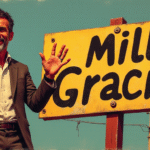Introduction to Yásnaya Aguilar and Her Relevance
Yásnaya Elena Aguilar Gil, a linguist, writer, translator, researcher, and activist for the Ayuujk language rights, participated as a speaker in the “Cultural Rights / Culture Economy” panel during the second day of activities at Mondiacult 2025, a UNESCO World Conference on Cultural Policies and Sustainable Development held in Barcelona, Spain. As ministers of culture from Côte d’Ivoire, Egypt, Peru, North Macedonia, and Uganda attended as active participants alongside cultural representatives, Aguilar Gil addressed the audience with her insights.
The Current State of Linguistic Diversity
Aguilar Gil highlighted the alarming situation of linguistic diversity, stating that out of approximately 7,000 languages worldwide, more than half are expected to disappear by the end of this century. Furthermore, only around 80 languages are officially recognized by states, leading to the marginalization and eradication of numerous languages through violence against their speaker communities.
The Interconnection of Language and Culture
She emphasized the necessity to discuss cultural rights alongside linguistic rights, as well as the importance of interculturally redefining the concept of culture. In many subrepresented languages, including her own Ayuujk language, the notion of culture is inextricably linked to nature and territory. This relationship, which contrasts with the Western distinction between nature and culture, has been disregarded by Western thought.
Mercantilization of Nature and Cultural Expressions
Aguilar Gil pointed out that the Western separation of nature and culture has resulted in the commodification of natural elements, viewing them as resources rather than common goods to which everyone has equal access. This perspective has led to the translation of indigenous cultural expressions into a rights-based language, often resulting in their assimilation into private property logic instead of communal ownership.
Protecting Collective Cultural Expressions
To address this issue, Aguilar Gil proposed that discussions on cultural economy and the relationship between cultural rights and economy should acknowledge societies and traditions where cultural expressions are also collective property, requiring protection from being transformed into private property or commercialized elements within the tourism industry or market logic.
Post-Presentation Discussion
Following Aguilar Gil’s presentation, the session explored strategies for strengthening cultural rights through political frameworks and laws, as well as methods to promote diversity and ensure participation in public and cultural life, particularly for underrepresented groups.
Key Questions and Answers
- What is Yásnaya Aguilar’s background and relevance? Yásnaya Elena Aguilar Gil is a linguist, writer, translator, researcher, and activist for Ayuujk language rights. Her participation as a speaker at Mondiacult 2025 highlights her significance in advocating for cultural and linguistic diversity.
- What is the current state of linguistic diversity? There are approximately 7,000 languages worldwide, but more than half are expected to disappear by the end of this century. Only around 80 languages are officially recognized, leading to marginalization and eradication of numerous languages.
- Why is it important to discuss cultural rights alongside linguistic rights? Linguistic diversity is intrinsically linked to cultural expressions. Protecting linguistic rights ensures the preservation of cultural diversity and prevents the assimilation of indigenous expressions into private property logic.
- How has the Western separation of nature and culture impacted cultural expressions? This separation has resulted in the commodification of natural elements and indigenous cultural expressions, often being assimilated into private property or commercialized within the tourism industry or market logic.
- What strategies does Aguilar Gil propose to protect collective cultural expressions? She advocates for acknowledging societies and traditions where cultural expressions are collective property, requiring protection from being transformed into private property or commercialized elements.






